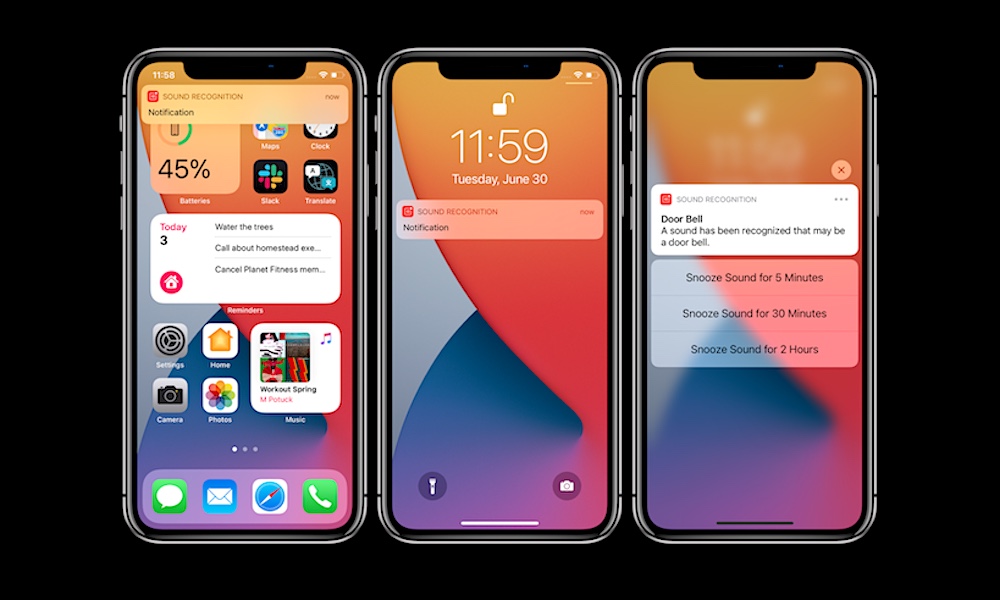How to Make Your iPhone Listen for Urgent Noises with Sound Recognition
 Credit: 9to5Mac
Credit: 9to5Mac
Toggle Dark Mode
Apple brought a bunch of new accessibility features to iOS 14 and iPadOS 14. Most of these features are meant to help people with hearing problems use their iPhones more effectively; however, some of these features can be used by everyone to improve their overall iPhone experience.
A great example of this is the new Sound Recognition feature. This feature lets you better monitor your surroundings with your iPhone constantly “listening.”
How Does Sound Recognition Work?
Sound Recognition turns your iPhone into a helpful hearing tool. When this feature is on, your iPhone starts to continually listen to its surroundings, looking for important sounds, such as fire alarms or people shouting.
When your iPhone recognizes a sound, it’ll automatically send you a notification to let you know what it heard. If you don’t want to deal with said notification, you can snooze it for 5 minutes, 30 minutes, or 2 hours.
It’s worth mentioning that your iPhone listens using on-device intelligence. This is Apple’s way of saying that you’re not being spied on and that our conversations aren’t being recorded.
Using on-device intelligence means that the recognized sounds are stored on your iPhone, albeit it doesn’t use much space. You’ll need between 5.0MB to 6.0MB, which is basically nothing.
We’ll have to see if, in the future, Apple decides to add more sounds, which would entail more storage. But that’s the small price we pay to rest assure that our information remains private.
How to Set Up Sound Recognition
Enabling Sound Recognition on your iPhone is fairly straightforward. Here’s what you have to do:
- Open the Settings app.
- Scroll down and select Accessibility.
- Scroll down again and, in the Hearing section, select Sound Recognition.
- Turn Sound Recognition on.
- Tap on Sounds.
- Here’s a list of all the sounds your iPhone can detect. Select the ones you prefer.
Sound Recognition Is Not a Life-Saving Tool
It’s important to remember that Sound Recognition is not supposed to be trusted in dangerous situations.
Apple states that you shouldn’t rely on Sound Recognition in circumstances where you might be harmed, in high-risk emergency situations, or for navigation.
There’s a reason for this. Sound Recognition is far from perfect. When testing it, it took a while before my iPhone would recognize some sounds. It does recognize them, eventually, but in a risky situation, it might be too late.
Nevertheless, Sound Recognition is a cool feature that helps you be a little more aware of your surroundings. Even if you don’t have hearing problems, you could use Sound Recognition while you have headphones on and are jamming out to loud music, etc.






